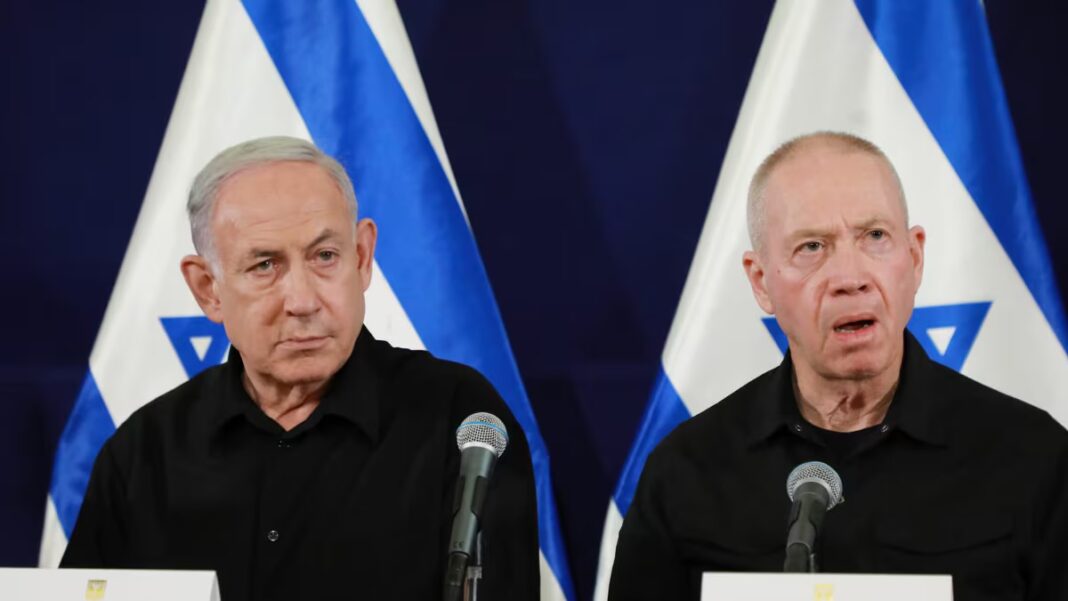Historic Decision by ICC
The International Criminal Court (ICC) has issued arrest warrants for Israeli Prime Minister Benjamin Netanyahu, former Defense Minister Yoav Gallant, and Hamas leader Ibrahim Al-Masri. They are accused of war crimes and crimes against humanity during the ongoing Gaza conflict. This decision marks a significant moment in international law as both Israeli and Hamas leaders face allegations of severe human rights violations.
Allegations Against Netanyahu and Gallant
The ICC judges claim Netanyahu and Gallant bear responsibility for actions against civilians in Gaza. These include murder, persecution, and using starvation as a weapon of war. The court highlighted the dire living conditions in Gaza, which lack basic necessities such as food, water, electricity, and medical supplies.
Israel has rejected the ICC’s jurisdiction, denying any wrongdoing in Gaza. Netanyahu’s office described the court’s decision as politically motivated and without legitimacy.
Hamas Leader Al-Masri’s Charged
The ICC also issued a warrant for Ibrahim Al-Masri, a senior Hamas leader. He is accused of orchestrating mass killings, hostage-taking, and other violent acts during the October 2023 attacks on Israel. Israel has claimed that Al-Masri was killed in an airstrike, but Hamas has not confirmed this. The ICC stated it would continue investigating his reported death.
Global Reactions
The ICC’s decision has drawn mixed reactions worldwide. Countries such as the United States, Israel, and others outside the ICC framework criticized the move. They questioned the court’s authority and its process of issuing these warrants. Meanwhile, nations like Jordan and EU members expressed support for the court’s actions. They emphasised the importance of accountability and justice for the victims of the conflict.
Impact on Netanyahu and Gallant
The warrants mean that Netanyahu and Gallant could face arrest if they travel to any of the 124 countries that recognise the ICC. This significantly limits their international mobility and increases the pressure on Israel’s leadership. Both leaders remain defiant. Israel has vowed to continue its military operations in Gaza to achieve its stated objectives.
Humanitarian Crisis in Gaza
The Gaza conflict has resulted in devastating humanitarian consequences. Over 44,000 Palestinians have been killed, and nearly the entire population has been displaced. The lack of basic resources has created severe hardships for civilians.
Israel’s military campaign followed a Hamas-led attack on southern Israel that killed 1,200 people and took over 250 hostages. The cycle of violence has led to widespread destruction and suffering on both sides.
Challenges for the ICC
The ICC does not have its own police force and relies on member states to enforce its warrants. This makes the arrest of Netanyahu, Gallant, and Al-Masri uncertain. Many global powers, including the U.S., China, and India, are not ICC members, limiting the court’s reach. The court’s prosecutor has urged member states to honor their commitments under the Rome Statute and cooperate with the warrants. The enforcement remains a significant challenge.
A Call for Justice
The ICC’s decision aims to bring accountability to the Gaza conflict. While it has sparked debates, the move highlights the importance of international law in addressing crimes against civilians. The coming months will reveal whether these warrants lead to concrete action or remain symbolic gestures in the pursuit of justice.

